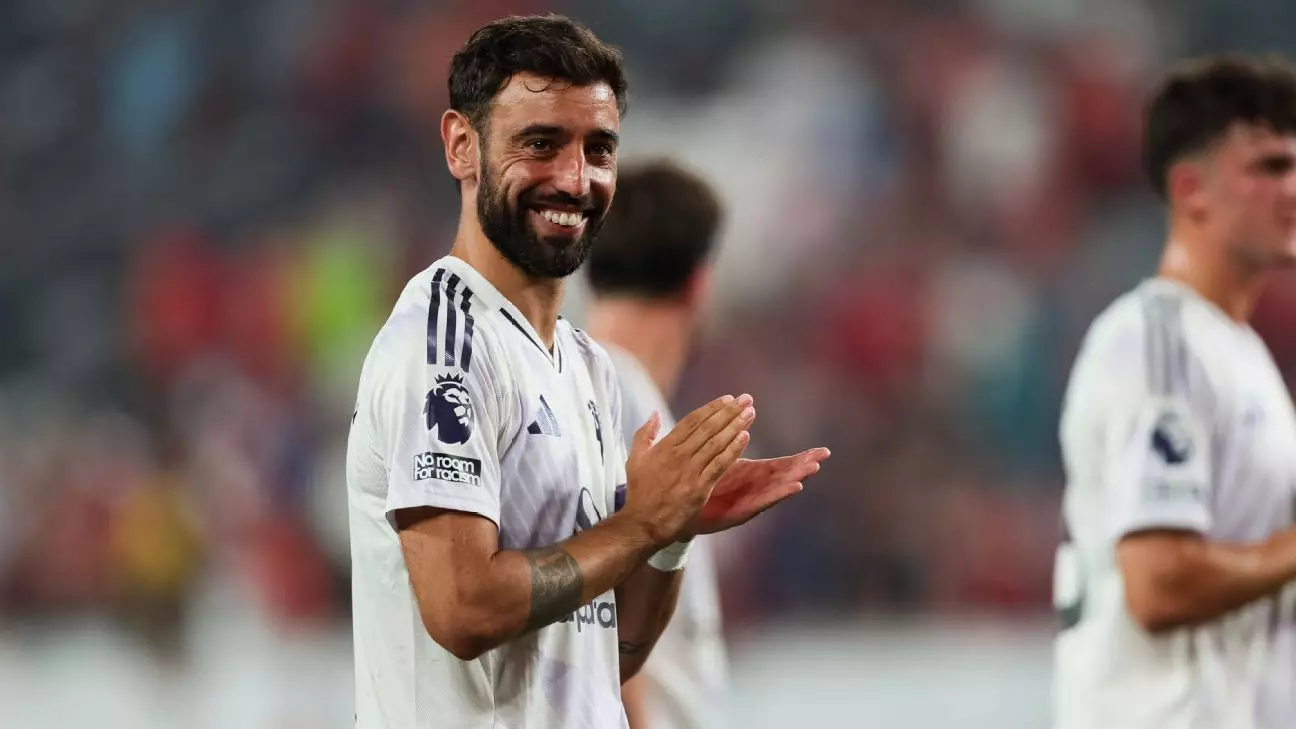In an era where footballers are increasingly swayed by lucrative offers and external influences, Bruno Fernandes’s decision to remain at Manchester United this summer was a pivotal moment for the club. While many players might have succumbed to the allure of a staggering financial deal from Saudi Arabia’s Al Hilal, Fernandes chose loyalty and continued to serve as the linchpin of United’s ambitions. This choice highlights not only his personal integrity but also the importance of having experienced, committed leaders in a team striving for resurgence. Fernandes’s presence on the pitch lends United a sense of stability and purpose that cannot be quantified merely by statistics.
The Significance of Leadership on and off the Field
Supporters often focus on a player’s technical skills, but Fernandes’s true value extends beyond raw talent—his leadership qualities are what distinguish him. Engaged both as a producer and a motivator, he embodies the spirit of resilience that Manchester United desperately needs. Manager Ruben Amorim’s comments underscore Fernandes’s multifaceted role: on the field, he’s a creative force capable of scoring from outside the box or coolly dispatching penalties; off the field, he sets the tone for professionalism and dedication. His decision to stay has evidently galvanized the squad, especially given the influx of new players who look up to him for guidance.
Adapting Roles and Tactical Evolution
Fernandes’s tactical versatility is a testament to his football intelligence. Previously deployed as a deep-lying midfielder under Amorim’s system, he now finds himself further forward, orchestrating attacks alongside new recruit Matheus Cunha and others. This positional shift speaks to a broader strategy by United’s coaching staff to maximize Fernandes’s influence. Yet, with adaptability comes challenges; Fernandes must balance his ambition with patience, understanding when to lead and when to facilitate, especially in a squad that still gels.
The Challenges of Leadership and Expectations
Leadership is a demanding mantle, especially within a club as historic and scrutinized as Manchester United. Fernandes embodies both the responsibilities and frustrations that come with it. His relentless work ethic and willingness to carry the team are commendable, yet Amorim’s remarks suggest that Fernandes needs support and patience too. There are moments when his intensity could threaten focus, and the development of softer leadership skills—like delegation and emotional regulation—is as crucial as his physical contribution. His journey reflects a broader truth: great leaders are often the most self-critical and aware of their flaws.
The Road Ahead: Stability and Growth
Fernandes’s decision to stay could be the catalyst for Manchester United’s revival. His experience, passion, and leadership provide a foundation upon which the club can rebuild confidence. As the season approaches, he must harness his qualities without succumbing to frustration, guiding a squad that is still reshaping itself. Success won’t hinge solely on individual brilliance but on his capacity to inspire collective resilience and unwavering focus amid the inevitable hurdles. His choice to remain signals a conviction that Manchester United can, with the right mentalities and unity, reclaim their place among football’s elite.

